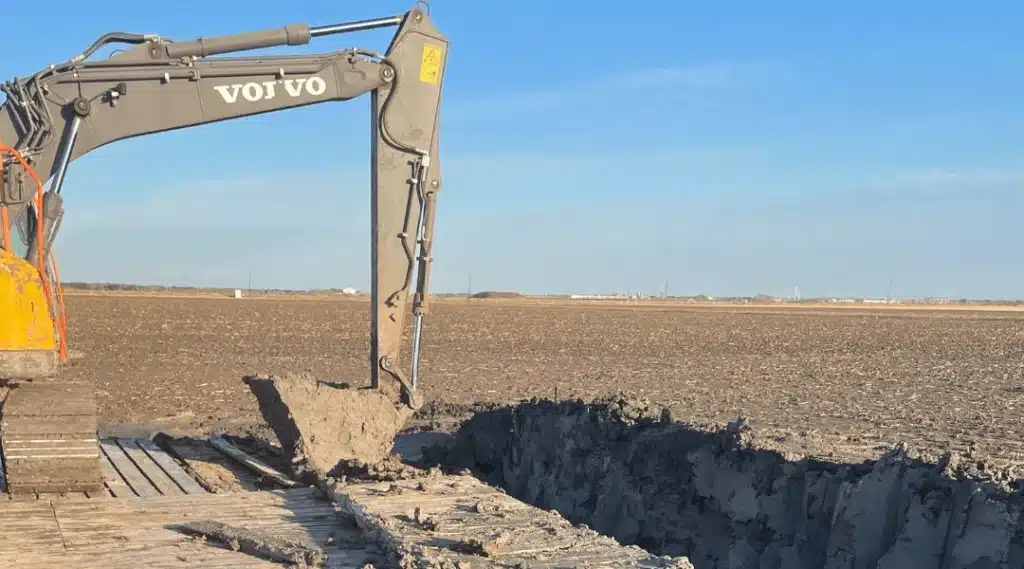Unlocking the value of your assets involves more than meets the eye, especially when it comes to something as specialized as passing down mineral rights. Whether you’re well-versed in asset management or entirely new to the concept of estate planning, understanding the ins and outs of mineral rights can make a great difference in how you protect and grow your assets, both for you and future generations.
The goal of this blog is to provide you with a complete guide on how to navigate the often complex process of passing down mineral rights. Whether you’re thinking of selling, transferring, or passing them down through a will or trust, knowing the correct steps to take is crucial. We’ll explore everything from beginning evaluations and legal considerations to overcoming challenges and ensuring a smooth transition of these invaluable assets.
So, stick around as we uncover the hidden treasure of successfully passing down mineral rights. Your future self—and future generations—will thank you!
The goal of this blog is to provide you with a complete guide on how to navigate the often complex process of passing down mineral rights. Whether you’re thinking of selling, transferring, or passing them down through a will or trust, knowing the correct steps to take is crucial. We’ll explore everything from beginning evaluations and legal considerations to overcoming challenges and ensuring a smooth transition of these invaluable assets.
So, stick around as we uncover the hidden treasure of successfully passing down mineral rights. Your future self—and future generations—will thank you!
Table of Contents
ToggleUnderstanding Mineral Rights
Before we dive in, let’s briefly cover what mineral rights are. Imagine you own a piece of land. Now, what’s beneath that land—be it oil, coal, or other precious resources—those are your mineral rights. Unlike surface rights, which concern the land and anything growing on it, mineral rights specifically pertain to the ownership and control of what’s found below the surface. Learning more about the difference between surface and mineral rights is the first step to uncovering your hidden wealth opportunities.

Why do Mineral Rights Matter? Think of it this way, your mineral rights could be a goldmine (sometimes literally!) in your asset portfolio. These rights can bring in royalties, provide tax benefits, and most importantly, serve as an asset that can be passed down to your heirs. In a world of fluctuating markets and economic uncertainty, mineral rights can be a valuable, more stable investment.
Preliminary Steps Before Passing Down Mineral Rights
Before you even think about transferring mineral rights to your loved ones, there are some important first steps you’ll need to take. Ignoring these can result in complications later on, affecting both your legal standing and the value of your asset.
Confirm Mineral Rights Ownership
You’d be surprised how often people think they own mineral rights when, in fact, they don’t. That’s why the first step is to confirm your property ownership by researching land records and mineral deeds. These documents, usually accessible through your local county clerk’s office, will show whether you, as the land owner, also possess the mineral rights to the property. If your land has been leased to an oil and gas company through oil and gas leases, these documents are particularly crucial.
While going through records might give you some insights, it can be complicated stuff filled with legal jargon. An expert can provide a comprehensive evaluation and confirm whether you’re the mineral owner. So, consider hiring professionals who specialize in mineral rights, title search and land records to ensure that you actually own what you think you own.
While going through records might give you some insights, it can be complicated stuff filled with legal jargon. An expert can provide a comprehensive evaluation and confirm whether you’re the mineral owner. So, consider hiring professionals who specialize in mineral rights, title search and land records to ensure that you actually own what you think you own.
Mineral Rights Valuation
You can’t just slap a price tag on your mineral rights, you’ll need to determine their actual worth. There are a few methods for this, such as income projection for producing minerals based on potential royalties, or comparison with similar properties. If your land is subject to oil and gas leases, the rates and terms of those leases can also be a factor in your valuation.
An accurate valuation is not only essential for understanding the fair value of what you’re passing down but also for tax considerations. Overvaluing your mineral rights can result in paying more in taxes while undervaluing can raise red flags with tax authorities. Accurate valuation can also impact estate planning and financial management for both the current mineral owner and the future recipients.
An accurate valuation is not only essential for understanding the fair value of what you’re passing down but also for tax considerations. Overvaluing your mineral rights can result in paying more in taxes while undervaluing can raise red flags with tax authorities. Accurate valuation can also impact estate planning and financial management for both the current mineral owner and the future recipients.
Legal Considerations
Understanding the legal landscape is crucial when it comes to mineral rights. Laws can vary by state and affect everything from the transfer process between mineral owners to how royalties are paid. If you’re dealing with an oil and gas company, it’s essential to understand the legal terms of your engagement as outlined in leases or other legal documents.
Legal issues can make or break your experience of transferring mineral rights. That’s why it’s wise to consult a legal expert well-versed in the matter. They can guide you through the maze of laws and regulations, helping you understand your obligations and rights as a land owner or mineral owner. They can also assist you in drafting any required legal document for the transfer process.
Legal issues can make or break your experience of transferring mineral rights. That’s why it’s wise to consult a legal expert well-versed in the matter. They can guide you through the maze of laws and regulations, helping you understand your obligations and rights as a land owner or mineral owner. They can also assist you in drafting any required legal document for the transfer process.

By paying attention to these preliminary steps, you’ll be setting yourself up for a smoother, more secure experience in passing down your mineral rights. In the next section, we’ll get into the nitty-gritty of how these rights can be transferred effectively.
Remember, if you’re feeling overwhelmed, Trull Service Company is always here to provide expert guidance on all things related to mineral rights. Feel free to reach out with your questions!
Remember, if you’re feeling overwhelmed, Trull Service Company is always here to provide expert guidance on all things related to mineral rights. Feel free to reach out with your questions!
How Are Mineral Rights Passed Down?
Navigating the realm of mineral rights, especially in sectors like oil and gas, can feel like walking through a maze. But don’t fret! Passing down such assets, whether they are producing mineral rights or non-producing ones, can be simplified with the right knowledge. Here, we’ll look at several methods for transferring ownership.
Wills and Trusts
Your will serves as the roadmap for how your assets, including mineral rights, will be distributed after your death. If you own oil and gas mineral rights, specifying the inheritance of these in your will is crucial. Just as you’d mention other property or assets, you can specify that your mineral rights be passed on to certain heirs.
Alternatively, trusts can also be used to manage and transfer mineral rights. Trusts can provide additional control over how these assets are managed and can often offer tax benefits. In a trust, you can specify conditions, timelines, and other factors, making it a more customizable option compared to a will.
Alternatively, trusts can also be used to manage and transfer mineral rights. Trusts can provide additional control over how these assets are managed and can often offer tax benefits. In a trust, you can specify conditions, timelines, and other factors, making it a more customizable option compared to a will.
Sale or Transfer
Selling your mineral rights is another way of ‘passing them down’, albeit not within your family. When you sell, you’re transferring mineral rights ownership to another entity entirely. Always remember to conduct a proper valuation, particularly in industries like oil and natural gas production, where the value can fluctuate based on market conditions.
If you’re not keen on selling but want to ease the responsibilities of owning mineral rights, you can also transfer ownership to family members while still retaining some benefits, like royalties from oil and gas extraction, for example.
If you’re not keen on selling but want to ease the responsibilities of owning mineral rights, you can also transfer ownership to family members while still retaining some benefits, like royalties from oil and gas extraction, for example.
Co-ownership and Partnerships
Co-ownership is when mineral rights are held by more than one party. This can happen automatically, say through inheritance, or be set up intentionally. In the oil and gas sector, this is often seen in partnerships formed by oil and gas companies to explore or develop a site.
Each co-owner will have their share of responsibilities and rights. While they will benefit from a fair deal of the revenues (especially lucrative in producing mineral rights), they are also obligated to contribute to expenses and decision-making processes. It’s crucial to lay out these terms clearly to avoid future disputes.
Each co-owner will have their share of responsibilities and rights. While they will benefit from a fair deal of the revenues (especially lucrative in producing mineral rights), they are also obligated to contribute to expenses and decision-making processes. It’s crucial to lay out these terms clearly to avoid future disputes.
Documentation and Recording
When it comes to ownership and transfer rights, whether through sale, wills, or co-ownership, it’s critical to have everything documented. From property deeds that specify surface rights vs. mineral rights to contracts detailing the specifics of the mineral rights transfer, you’ll want everything in black and white.
After any form of transfer, it’s essential to properly record these changes with the relevant governmental bodies. This usually involves updating property deeds and any other legal documents to reflect the new owner and ownership status. Without proper recording, the transfer of the property deed is not complete, leaving room for potential legal complications.
After any form of transfer, it’s essential to properly record these changes with the relevant governmental bodies. This usually involves updating property deeds and any other legal documents to reflect the new owner and ownership status. Without proper recording, the transfer of the property deed is not complete, leaving room for potential legal complications.
Potential Challenges and How to Overcome Them
Managing mineral rights comes with its own set of hurdles. From tax implications to disputes, let’s take a quick look at these challenges and how to tackle them.
Tax Implications
If you sell your mineral rights, you might have to pay a special tax called “capital gains tax.” This is the tax you pay when you sell something for more money than you bought it for.
Also, if you’re making money because a company is using your land to extract minerals, those earnings could be taxed, too. So, it’s smart to know how your earnings might affect your taxes.
Also, if you’re making money because a company is using your land to extract minerals, those earnings could be taxed, too. So, it’s smart to know how your earnings might affect your taxes.
Disputes and Legal Challenges
After a death, assets like mineral rights often go through probate, which is a legal process to authenticate a will and distribute assets according to it. If no will exists, probate helps determine how assets should be divided.
Issues can arise during this process if multiple property owners claim the same mineral rights. If disputes arise over mineral estate ownership or inheritance, consult a legal expert in mineral rights immediately.
Issues can arise during this process if multiple property owners claim the same mineral rights. If disputes arise over mineral estate ownership or inheritance, consult a legal expert in mineral rights immediately.
Preventative Measures
To avoid issues, keep all documents, like the mineral deed, clear and up-to-date. This will reduce the chances of disputes and make the probate process smoother.
By being aware of these challenges and taking proactive steps, you can better navigate the complicated waters of managing and transferring mineral rights. Remember, knowledge is power, and in this case, it might also mean fewer headaches and more financial gain.
By being aware of these challenges and taking proactive steps, you can better navigate the complicated waters of managing and transferring mineral rights. Remember, knowledge is power, and in this case, it might also mean fewer headaches and more financial gain.
Next Steps After Transfer and Conclusion
Congratulations on successfully transferring your mineral rights! But your journey in mineral rights management is far from over. What you do next can be just as crucial for your long-term financial success.
Management and Operations
Now that the mineral rights are yours, effective management becomes the next step. Whether your rights are producing or non-producing, don’t take your eye off the ball. Stay on top of any changes in status and monitor any income that may come your way.
To enhance your management strategies, don’t hesitate to consult with experts specializing in mineral rights. Their insights can help you unlock the full potential of these valuable assets.
To enhance your management strategies, don’t hesitate to consult with experts specializing in mineral rights. Their insights can help you unlock the full potential of these valuable assets.
Ongoing Responsibilities
Along with the excitement of new ownership come ongoing responsibilities, particularly in the legal and financial realms. Be aware that you’ll have tax obligations based on royalty interest and any income generated from these rights. Keeping meticulous records and consulting a tax specialist can save you from future headaches. Keep in mind that existing lease agreements and contracts typically carry over after the mineral rights transfer.
Conclusion
Transferring and managing mineral rights is a complex but rewarding endeavor. From understanding tax implications to navigating the probate process and ongoing responsibilities, there’s a lot to consider.
However, this shouldn’t intimidate you. With the right information, you can make educated decisions that benefit you in the long run. Remember, the key to successfully managing these valuable assets is awareness and preparation.
However, this shouldn’t intimidate you. With the right information, you can make educated decisions that benefit you in the long run. Remember, the key to successfully managing these valuable assets is awareness and preparation.
Contact Trull Service Company

Navigating the complexities of mineral rights can be daunting, but you don’t have to go it alone. If you still have questions or find any part of this process confusing, don’t hesitate to reach out for expert advice.
Contact Trull Service Company today. We’re here to clear up any uncertainties and guide you every step of the way in your mineral rights journey.
Contact Trull Service Company today. We’re here to clear up any uncertainties and guide you every step of the way in your mineral rights journey.











